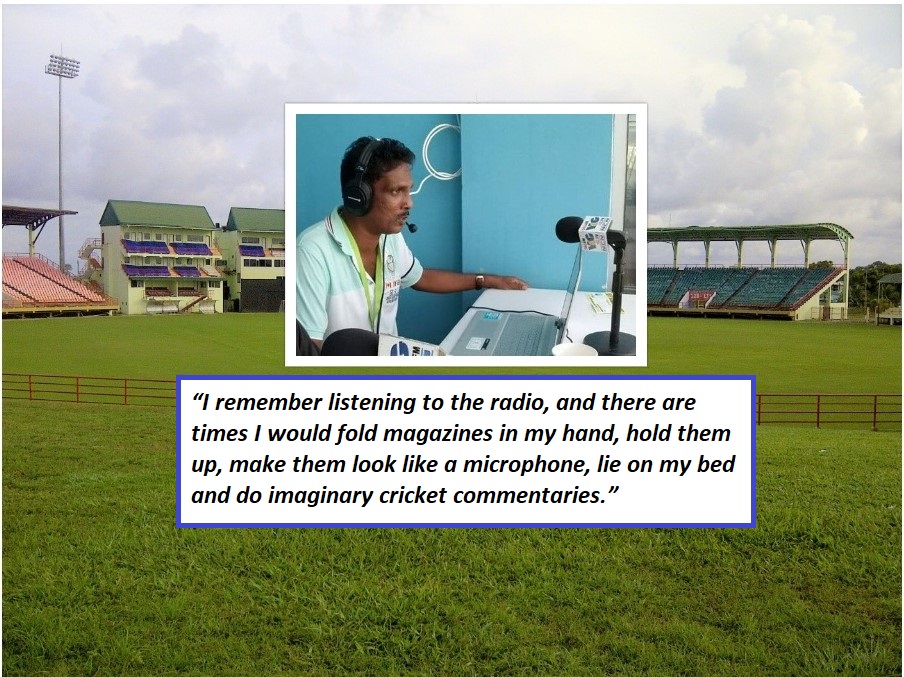By Avenash Ramzan
Cricket’s most prolific runscorer Sachin Tendulkar has repeatedly said: “Don’t stop chasing dreams, because dreams do come true.”
Winning the 2011 World Cup, after five previous failed attempts at the game’s global showpiece, was the manifestation of not giving up in the pursuit of excellence.
Inspired by India’s success in the 1983 final against the Clive Lloyd’s mighty West Indians, Tendulkar, only 10 at the time, played his first World Cup in 1992, but he had to wait 19 agonising years to experience “the best moment of my life.”
When the stars finally aligned, Sachin was the toast of the nation, the hopes of whom he carried on his shoulders throughout a career that was replete with success and inspiring stories.
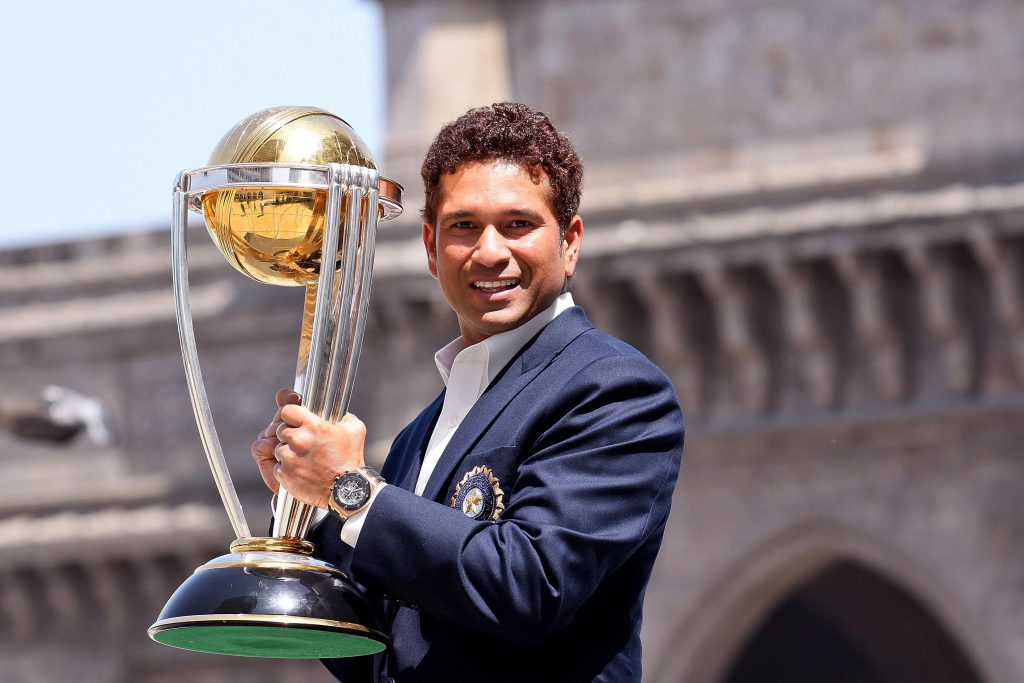
The story of the ‘Little Master’ came to mind recently as I chatted with renowned Guyanese cricket commentator Inderjeet Persaud, someone I’ve grown to admire and respect throughout our years of interaction through ‘the gentleman’s game’.
‘Sir Jeet’, as he is fondly known, is from Wash Clothes, Mahaicony, a major rice producing and cash crop farming area in the country. Growing up in rural Guyana inevitably meant he was fed a heavy diet of cricket, but his appetite for academic achievements also found a space on the plate.
“I remember listening to the radio, and there are times I would fold magazines in my hand, hold them up, make them look like a microphone, lie on my bed and do imaginary cricket commentaries,” Persaud told News Room Sport.
“I would even go in the toilet and do imaginary cricket commentaries. Mommy would shout on me ‘what’s happening to you boy, you getting mad’; so I always had this flair.”
It was certainly not a case of becoming deranged, but rather the planting of pillars on which a career in the commentary box would be erected.
“Just before I started cricket commentaries on the radio, I used to do cricket commentaries in the pasture in Mahaicony. We set up our nice little PA system and we do local cricket; I did horse-racing as well. So it all had its genesis in those humble beginnings.”
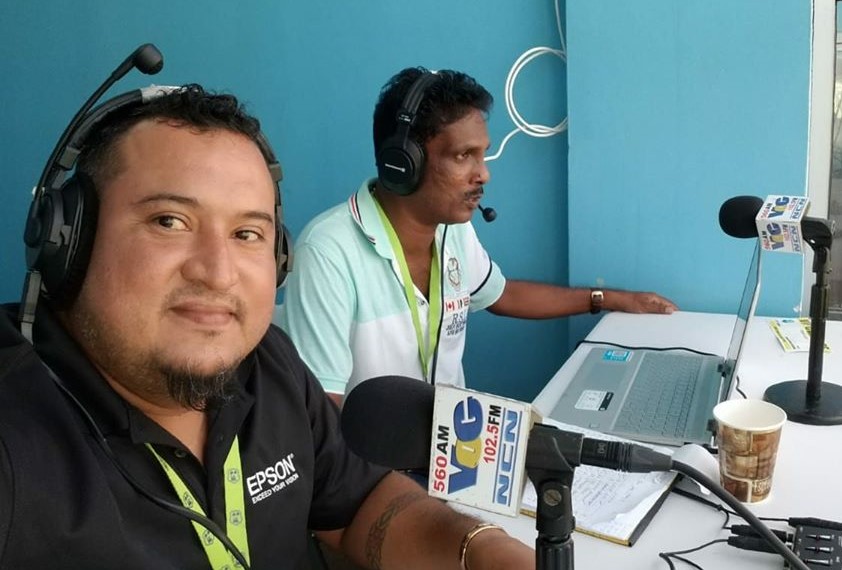
The Breakthrough
Today, 23 years after his first stint at the national level, Persaud is a common voice on the radio, and is easily among the best orators of the game in Guyana and the Caribbean.
Flair and fluency have been the hallmark of his commentaries, and his ability to add life to the dreariest passage of play is undeniable.
The journey began in 1997 when Persaud responded to a call for budding commentators to undergo training at what was then the Guyana Broadcasting Corporation (GBC).
After attending the interview and gaining the nod, he was trained by Guyana’s most experienced commentator Joseph ‘Reds’ Perreira, and part of that training included listening to tapes of distinguished men in the field, the likes of Tony Cozier, Alan McGilvray and Brian Johnston.
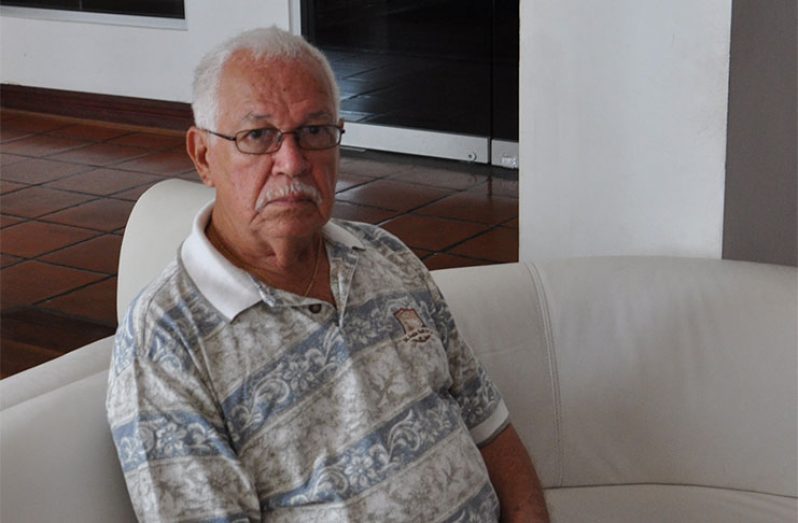
“At the end of training we had to an evaluation and I’m one of those guys who actually passed my evaluation. We went to (Georgetown Cricket Club) Bourda under ‘Reds’ and we did imaginary cricket commentaries for three minutes. I never realised three minutes could have been so long,” Persaud reflected with a chuckle.
“After we finish that, they made their selections. I was selected to report on the Guyana/Barbados match, which was played at LBI. So it all started in 1997. I moved from that, I did ball-by-ball commentary for the first time- Guyana versus Trinidad and Tobago- Under-19 cricket at Uitvlugt.”
At the completion of the Youth tournament, Persaud received commendations from the folks at GBC and he was invited to be part of the panel for Inter-County cricket in 1998.
He quickly moved up the ladder, graduating to Regional Four-Day cricket and later on became part of the CMC panel of regional commentators after being personally invited by seasoned Caribbean broadcaster Lance Whittaker.
Since then, Persaud has presided over a large volume of regional cricket matches, as well as four Test matches, nine ODI games and the Hero Caribbean Premier League from its inception in 2013.
The Challenges
But as he would say, the pitch was not always conducive to strokeplay; the ball was moving around and he had to weather the short-pitched bowling.
“There were times when it was pretty, pretty rough,” he reflected.
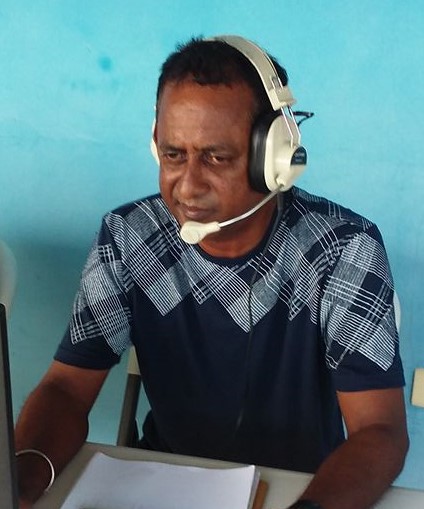
“Growing up in the country area in Guyana; those who know Mahaicony, it’s like 45 miles from the capital city Georgetown on the main highway, then you have to go a further seven miles down Branch Road. I haven’t come from a rich family, so in those early days you had to finance your own travel, it was never easy, but thank God for my family and some good people onboard,” Persaud intimated.
“And I’ll tell you something; when I got into the field of cricket commentary then I learnt in the professional world that there might be some setbacks. There will always be people who like you and there would always be people who don’t like you.”
“I remember asking one senior cricket commentator in Guyana when I was doing my first match ‘what kind of advice can you lend me to help me be successful?’ and he was very arrogant. All he said to me was ‘What? Advice? Stick to your commentaries.’ But I had some good buddies who I could count on- (fellow commentator) Naim Chan, ‘Reds’ Perriera and (Producer) John Ramsingh- they were very, very helpful to me. I found that aspect of it very challenging, but I came through. There is nothing like when you set your goals and you work towards achieving them.”
A Producer’s delight; a humble man
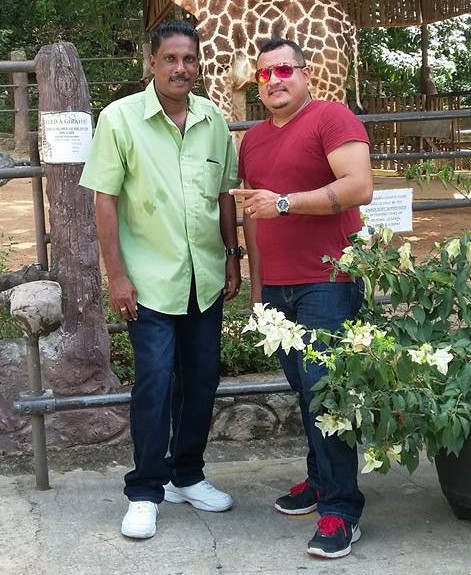
Ramsingh, who has been the main Producer for radio commentary in Guyana for close to two decades, has worked closely with Persaud since 2003. He described the father of one as “a Producer’s saviour.”
“His pre-match preparation sets him apart and gives him the advantage to fill any slot on any roster. ‘Jeet,’ as we call him, is always humble when asked to start the ball rolling, to lift us when it’s quiet in the middle, or to take us to the end in the most exciting and captivating way possible,” Ramsingh divulged.
He added: “His general knowledge and unique on-air personality give me the assurance that listeners are informed and entertained at the same time. Despite his achievements with the microphone and headset, Inderjeet is still open to learning and trying new things, both for himself and the wider audience.”
Being fully prepared for the task at hand is a mantra by which Persaud lives: “You must have knowledge of the players, the tournament that is taking place, knowledge of the ground, knowledge of the various radio stations that are taking the commentary, so you cater for your audience. So preparation is the main thing.”
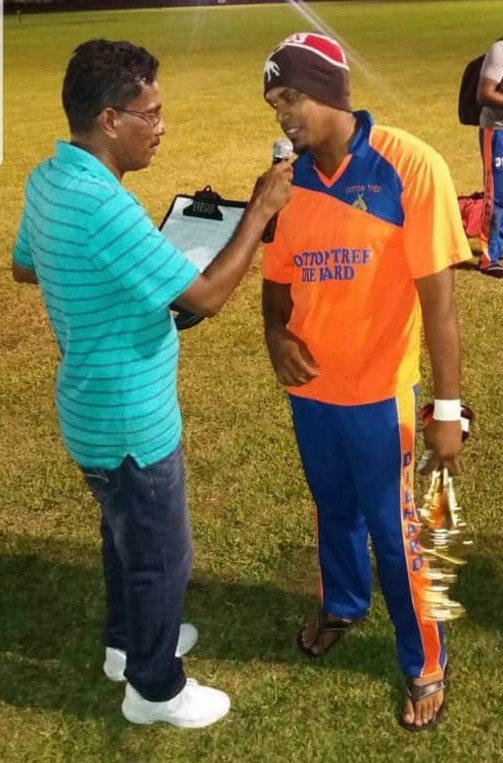
“Listeners need a true picture of what’s happening on the ground; they must be able to see live cricket based on your voice and what you’re transporting to them, whether they’re in their cars, their homes or their hammocks.”
Despite his national and regional acclaim, Persaud has remained true to his roots, and his voice could still be heard at grassroot cricket events, most times volunteering his time to promote the game.
President of the Blairmont Cricket Club, Shabeer Baksh, said Persaud is a close friend of the club, and members have come to embrace and admire the commentator’s humility and passion for the game.
“He’s a very simple and down-to-earth person, and one of the things that standout is that he’s very discipline and family-oriented. He’s also a very community-spirited person and a big brother who you can always call for advice,” Baksh said.
“Whenever we have our events at the club he’s always willing to assist, and would usually go out of his way to assist. He’s definitely a big influence on the game in these parts. His commentary is outstanding, and he’s definitely one of the best in the business.”
Like Tendulkar, Persaud followed his dreams, and they both proved where there is a will, there is a way.
Editor’s Note: Inderjeet Persaud is a full-time educator, with 34 years of unbroken service to the sector. He also does a little bit of cash crop, livestock and rice farming. Away from the commentary box, Persaud describes himself as a simple and humble individual who likes to socialise.



